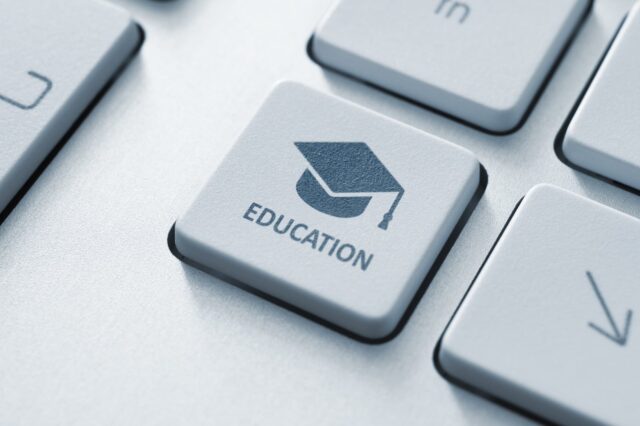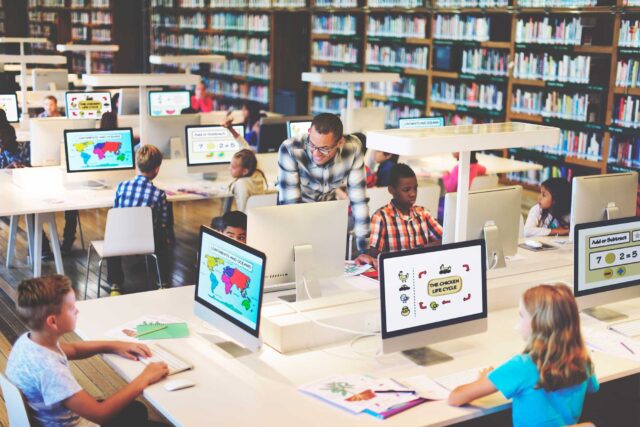
Gone are the days when the education system was independent of technological tools. We now live in a digital age where technology has become an indispensable part of our educational system.
Although technology is a powerful tool that has transformed the learning experience, when implemented inefficiently technology can be counterproductive to the learning process. These inefficiencies exist because educational institutions often fail to notice that using technology is not the same as using it efficiently.
At the same time, with all the undoubted theoretical and practical significance of all studies on the problem of using IT in education, it should be noted that a number of problems remain insufficiently developed. Including:
- the theoretical foundations of the use of computer technology to ensure pedagogical activity are not well developed;
- there is a lack of theoretical justification for the development of software and methodological support for training in modern information environments;
- insufficiently theoretically substantiated methods for the integrated use of networked computer technologies for training and organizational and methodological support for independent cognitive activity, etc.
It is also obvious that the range of issues that make up the subject of information technology in education is extremely wide, and an attempt to present all aspects of the problem in one manual would be doomed to failure.
Therefore, this publication focuses on the consideration of certain pedagogical, psychological and methodological aspects of the use of information technology in preschool, primary and primary education, to the detriment of the presentation of hardware, software and technical support for automated teaching systems.
Use vs. efficient use of technology

With time, technology has changed the ways the teachers deliver their lectures or students interact/collaborate with their peers.
Hence, it has become a norm to use multimedia to make lectures interesting or to use social media groups for interaction. However, it is important to note that using these tools does not that ensure that most of us are using these tools efficiently i.e. making few mistakes during the technology integration process.
Thus, educational institutions may not reap the full potential of technology integration because at times they make the following crucial errors:
- Fail to provide professional training for skill development
- Fail to understand the purpose of technology use
- Fail to realize when it is technology overuse
- Fail to provide accountability and supervision
1Fail to provide professional training for skill development
In one scientific research on incorporating education technology, it states that teachers in training do not get sufficient information regarding how to use technology for learning purposes. Hence, technology integration becomes unsuccessful if teachers are not given professional training to acquire relevant skills.
For example, PowerPoint slideshow is one of the most common visual aid used in any classroom setting. However, not everyone is able to make a good presentation that has the right amount of content, bullets, sections, transitions, or animations. Thus, without proper training, preparing lecture slideshow is not only a tedious task to do but can also result in a presentation that is a visual distraction for the students.
Moreover, apart from training teachers to make efficient use of software, schools often fail to educate teachers to make offline back-ups and deal with troubleshooting to minimize time wasted to fix such problems.
2Fail to understand the purpose of technology use

People may know how to use technology. However, are they aware of the purpose of use? Maybe not. Lack of such knowledge makes the education system as technology-driven instead of curriculum-driven.
In other words, it means that teachers may use technology just for the sake of using it and not for the purpose of enhancing or supporting the educational environment. Some of them even do not use services like Pro-Papers to make their homework faster.
3Fail to realize when it is technology overuse
Too much of anything adversely affects our health, whether it is taking too many vitamins or drinking too much water. The same is the case with technology use as it can have a harmful impact on neurological development, especially for youngsters.
Overuse of technology in classrooms conveys a message to students that they can use depend on technology all the time. Hence, by making this grave mistake, school becomes responsible for further making children as digital zombies.
For example, if in the early grades, teachers focus on accepting only print assignments then it would eradicate the opportunity to develop handwriting skills. Or if in the music class, students use iPads to play the music then they would never be able to learn how to play actual instruments.
Therefore, without having proper planning about when and how to incorporate technology, these tools hamper future cognitive abilities and deductive reasoning of students.
4Fail to provide accountability and supervision

We live in an era of technological advancement where even youngsters have access to their own smartphones and iPads. However, it does not mean they also know to use these tools for learning purposes. In a general survey, it was revealed that pupil associated iPad with fun and games. Moreover, most students used social media for personal satisfaction rather than a collaboration tool.
For example, teachers can create twitter hashtags or WhatsApp groups to help introvert students and use these forums during class discussions. However, using personal twitter accounts or WhatsApp profiles would raise the risk of cyberbullying.
In conclusion, without adequate accountability and supervision, technology can hurt even more than it can benefit.
Key takeaways
Technology opens up new opportunities, enhances the visual experience, and enriches the cognitive ability of students. Hence, the use of technology can make lectures more interactive, interesting, and easier to comprehend.
However, technology integration may become unsuccessful if we are not careful enough. In other words, disaster may result if the education system fails to improve technology skills, provide adequate supervision, create a purpose of use, and achieve balanced use of technology.
A special psychological and pedagogical problem is the diagnosis of giftedness in the field of information technology, as well as the training of talented students, the creation of individualized programs. The specifics of giftedness in this area of human activity has been little studied.
Traditional ideas connect it mainly with a high level of development of logical thinking and with mathematical abilities. From the point of view of modern researchers, such a view simplifies the multidimensional nature of this type of giftedness.
These researchers emphasize the role of personal, communicative abilities and social factors in the formation of giftedness in the application of information technology.







